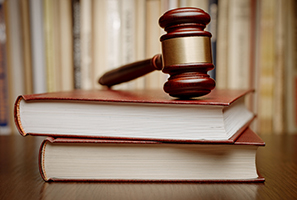Essentials to Know About TBI & Concussions

At Valent Legal, many of the clients that walk through our doors have suffered from some form of traumatic brain injury (TBI). Some of them go on to manifest into chronic post-concussive symptoms.
These TBI symptoms can be debilitating and can affect many aspects of an individuals’ life such as difficulties with balance, headaches, fatigue, decreased ability to concentrate, poor memory, anxiety/mood disorders, and sleep disturbances.
Concussions have been poorly misunderstood for a long time. There was a time when doctors believed that a person did not suffer from a concussion unless they lost consciousness. New research has expanded health professionals’ understanding of TBIs and it is widely accepted that a diagnosis of concussion no longer requires loss of consciousness. New understanding and innovative technology can now objectively diagnose a concussion by imaging and mapping the brain and brain function.
What causes a concussion?
According to Concussions Ontario, concussions can occur because of a “hit in the head, neck, face, or somewhere else in the body that makes the brain move quickly back and forth inside the skull”. Falling, being in a collision, or being hit by an object or person are all examples of actions that may cause a concussion.
Concussion symptoms can appear right away or they can manifest days later. Most people that suffer concussions make a full recovery within 4 weeks, but for many, recovery can take much longer, with symptoms persisting for months or years.
Damages for concussion-related injuries
Like for any other injury, a person can claim damages for a traumatic brain injury or concussion if their doctor diagnoses a concussion as a result of the accident forming the basis for the individual’s claim.
When a person suffers a brain injury due to an accident, they may need to take time off work or school, which can add stress to an already stressful time. In addition to damages for pain and suffering as a result of the injury, an individual may be entitled to compensation for lost wages, medical expenses, or future wage loss.
What to do if you suspect a concussion?
If you suspect a concussion your very first step is to get a proper diagnosis and treatment from a healthcare professional. After your diagnosis, there are steps to take to ensure a full recovery.
There are a number of steps to take when diagnosed with a concussion. For example:
- Manage your physical and mental energy. Your brain and body need time to heal.
- You should discuss with your doctor when it would be appropriate to return to school, or work.
- Take care of your basic needs such as sleep.
- If you have trouble getting a good night’s sleep, you should consult your health care provider.
- Finally, manage stress. Stress can oftentimes make symptoms worse, and there is nothing more stressful than finding yourself involved in legal proceedings.
If you suspect you suffered a concussion, you should consult your primary health care professional right away. Hopefully, individuals make a full recovery after suffering the traumatic effects of an accident or fall.
For those that wish to pursue a legal claim, our experienced brain injury lawyers are here to help. Call us for a free case review or submit a contact form online.






















